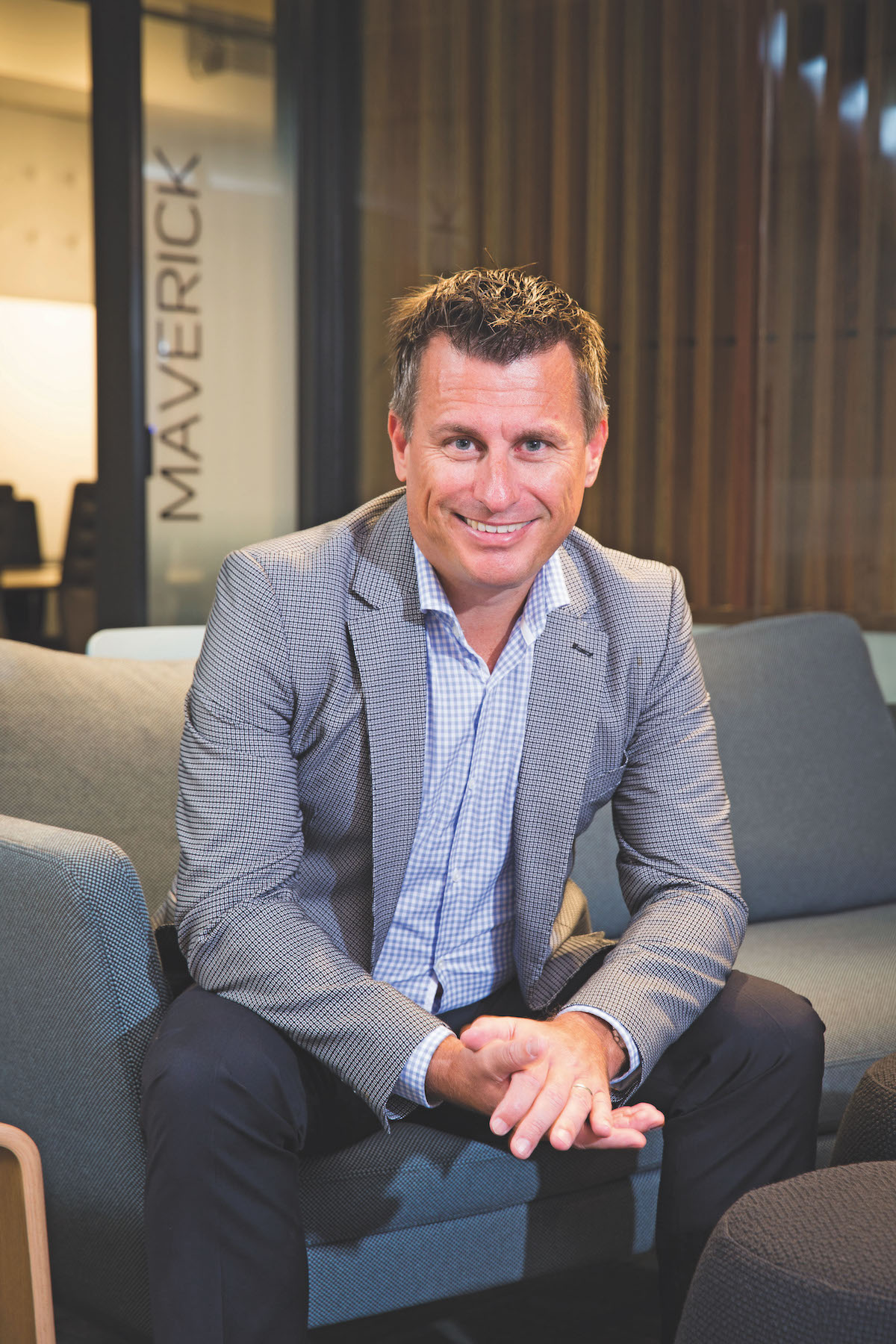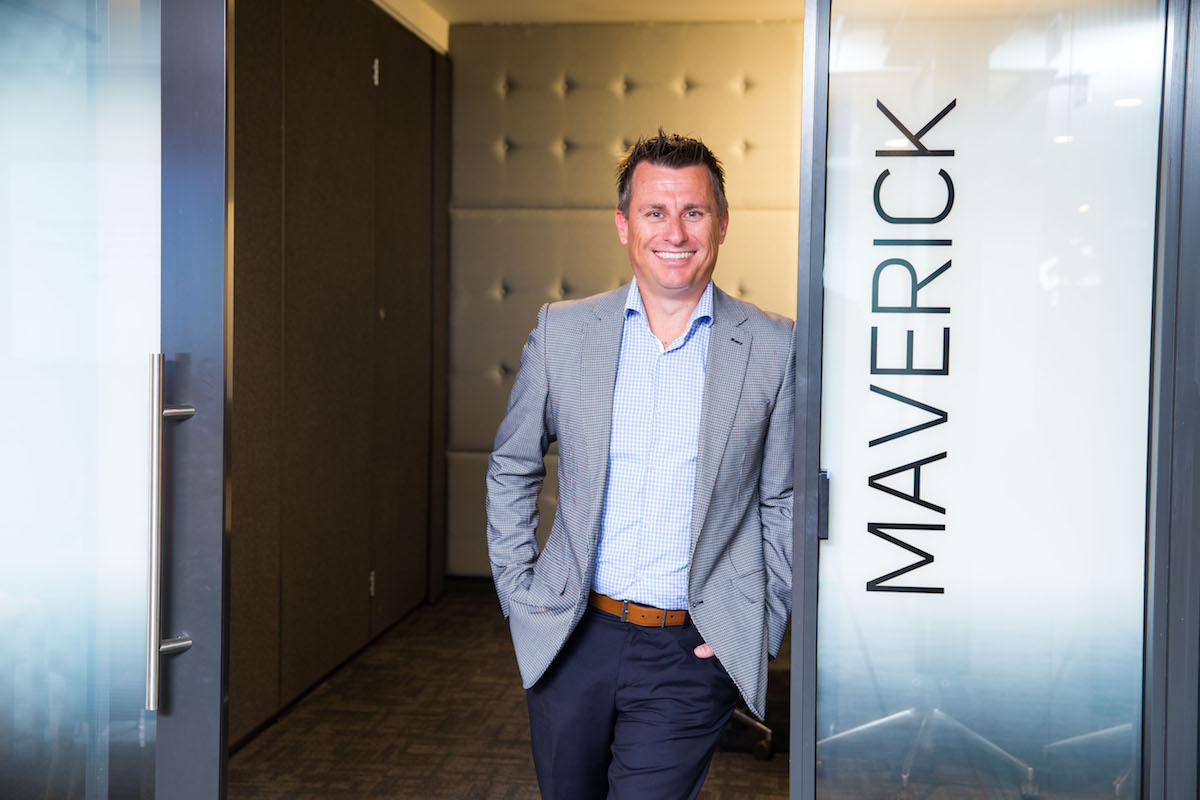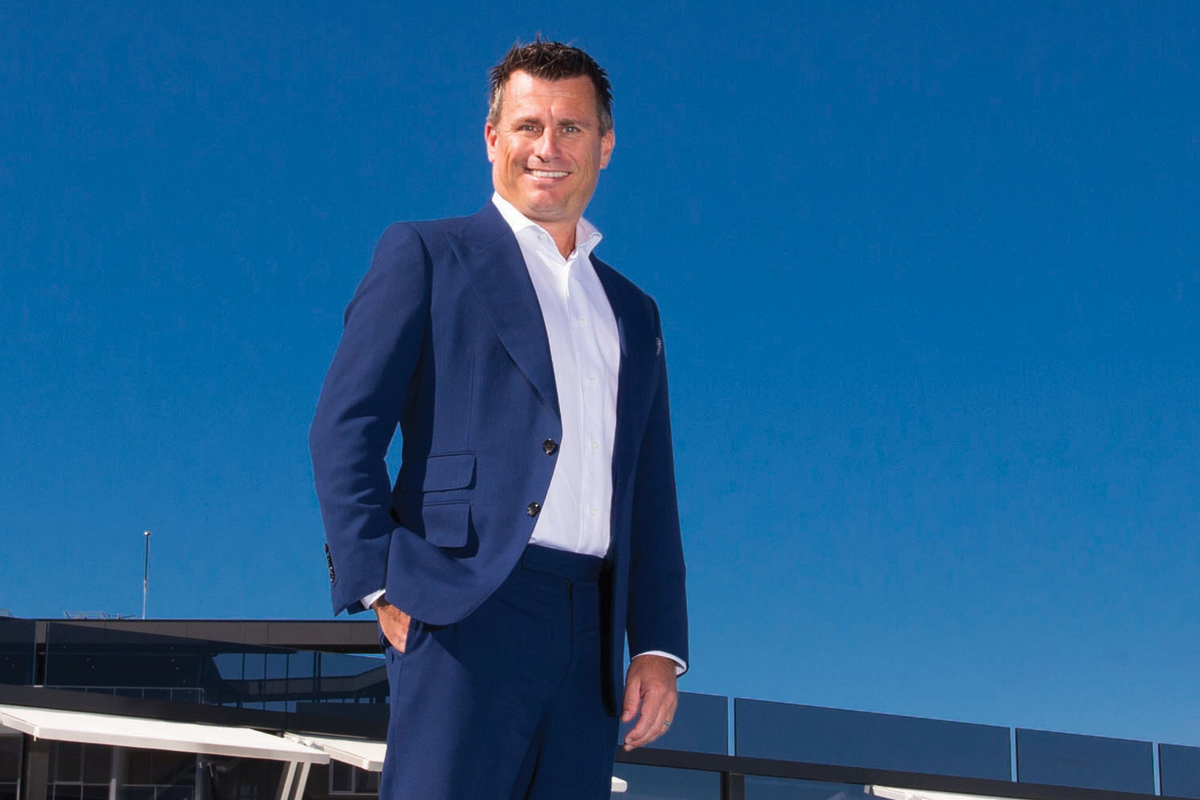Back when Glenn Rutherford was baggage handling and cleaning aircraft for Aerocare at Newcastle Airport, he never thought for a moment he’d end up running the company. He was studying chemical engineering at the time, and working part time on weekends to support himself. And while he could have just gone through the motions, counting the minutes until the end of each shift, Glenn took it upon himself to enhance the efficiency of Aerocare’s satellite operation.
“Over the course of my time there, I sought to do things to improve the business, just as a regular worker,” he reveals. “I introduced software programs like basic spreadsheets for rosters, and a database to better manage fuel.” Naturally, his resourcefulness didn’t go unnoticed. He was swiftly promoted to supervisor and then manager, while still working just three days a week.
“I was then made redundant when the customer we had cancelled its contract,” Glenn reveals. “But I stayed in touch with the company, and three months later I was asked if I’d jump back in and give them a hand. Up until that point, I’d never planned on following this path. We’d lost the contract and I was starting a new career. But when this opportunity presented itself, I thought, ‘I like the business and I think it’s got potential, so I’m in.’”
Glenn Rutherford takes charge of Aerocare

Just like that, Glenn moved to Sydney and became CEO of Aerocare. “Yes, I guess it was an unusual start,” he grins, thinking back to 1997. “We had about 35 staff then and it was certainly challenging to begin with.” Two decades on, and Aerocare now has more than 3,000 employees and is the leading airport ground-handling company in Australia and New Zealand.
Glenn explains that Aerocare’s moment of truth came four years after he took charge. “Our primary customer, Impulse Airlines, was bought by Qantas, so we found ourselves without a contract but with a bunch of capability and spare equipment.”
Meanwhile, Virgin Blue, now Virgin Australia, was looking to fill the void left by the collapse of Ansett, and it asked us to take over the operations of its Canberra Airport launch. “We were invited on a Friday and were operating by the Sunday. A project of that scale would typically take weeks and we completed it in 36 hours, as per the deadline. We secured a further six contracts almost immediately because of that success.”
Strengthening Aerocare’s domestic position
As well as consolidating Aerocare’s partnership with Virgin Australia, the experience in Canberra inspired Glenn to strengthen the company’s position on the domestic front. “Our multinational competitors were focusing on international airlines and cargo, so we thought we would put our focus into the largely insourced and ‘hard to get through’ domestic market,” he explains.
“We believed we could add value in that local space based on what we’d experienced in Canberra and through the subsequent contracts we picked up with Virgin Australia and later the Qantas Group, Tigerair, and internationals like Singapore Airlines and Qatar.”
“We wanted to build a robust platform before moving to international operations, and that direction has been crucial to our growth. Asia is the largest-growing aviation region on the planet. It’s inevitable we’ll be there; we’ll pick our time to be there, though. There’s still a lot of opportunity for our growth in Australia.”
Another of Glenn’s important strategic moves was in 2016 when the company acquired Carbridge, Australia’s leading airport busing company, which is pioneering green and efficient electric bus technology. “It’s an exciting space to be in. We’re helping Australia’s airports deliver on their sustainability and emission reduction commitments with buses that are also incredibly quiet, clean and efficient.”
Adopting a blank-canvas mentality
Glenn’s rapid ascension to CEO meant he didn’t have the business grounding of other executives. Rather than lament being thrown in the deep end, he says it gave him a unique perspective on the industry.
“I had a limited set of business skills back then, and I guess that was a hindrance to some extent, but it also proved to be very beneficial,” he explains. “We identified in the early stages that for us to exist, we would have to do things differently, and better, than the well-established players. If we couldn’t achieve that, we wouldn’t survive.

So we challenged the conventional thinking on just about everything, and employed a blank-canvas mentality.
“So we challenged the conventional thinking on just about everything, and employed a blank-canvas mentality. By not being restricted by legacy thinking, and applying cutting-edge technologies, we were able to find ways to deliver improved performance, service and efficiency.”
While Glenn was relatively new to the scene, so was the company he was leading. This created an environment of open-mindedness and flexibility. “Our late entry into the market allowed us to look at the way the industry was operating and then ask, ‘How could it all be done better?’” he continues.
“We’ve only been around for 25 years in a 100-year-old Australian industry, and the older companies were a little stuck in their old ways and didn’t see that there were better ways to do things. Because we delivered improved quality with better value, we’ve enjoyed well-above-average growth. “We’ve also been way ahead of the game in terms of embracing technologies.”
Staff satisfaction is a priority
Aerocare developed bespoke data technology in 2004 that Glenn insists is still the leading system in the region. In addition, knowing that the ability to access quality people would be a key to growth, Glenn also applied technology to the company’s recruitment systems.
With the help of a team of psychologists, an online psychometric profiling tool was developed that targets the ideal candidates for specific roles within the company. Currently, it is developing a rostering system designed to engage and retain those people by enhancing work–life balance, that “gives staff the ability to have a high level of influence over the rosters that they’ll work”.
Indeed, Glenn has long made staff satisfaction a priority. Saying it not only ensures the best and brightest remain with the company, but also those at the coalface continue to enhance its reputation. “We find that we often have a greater level of success by promoting from our own talent pool,” he nods.
“We find that people who grow within the company understand us and can contribute well. I mean, there’s a great story of a 17-year-old guy who started as a baggage handler in the Northern Territory, who went on to become a supervisor, then a manager of that operation. He moved to Tasmania to become a manager of a bigger operation, and now he’s our highest-performing commercial manager. He is just one of dozens of employees across the business who have grown within the company, moving from entry-level frontline roles into some of our most senior management and specialist positions.”
“We have amazing staff in our business.”
Glenn even initiated a ‘Top 50’ employee-recognition scheme so he could hear about all the great deeds of his staff, and then reward them for it. “We’re in an industry with exacting customer and regulatory standards, and one that is very self-critical. There was obviously a lot of wonderful work being carried out that was helping us achieve our industry-leading performance, and I wanted to hear about it.
“So I put a request out to our staff to tell me about the good things that their colleagues were doing, and share their amazing stories. They were so uplifted by it, I brought them all together and sent 50 of them away together on a holiday. We now send 150 staff away each year to places like Bali and the Whitsundays, or on ski trips and cruises.”
He rattles off a handful of incredible stories including a frontline employee who held a pilot’s licence chartering a plane so he could deliver a bag to a passenger in a remote location, or staff who have literally saved lives, providing critical first aid and CPR to customers and passengers in need. “We have amazing staff in our business. It’s literally the cliché: without them, we’re nothing.”
It’s exactly the inspiring mindset you’d expect from a baggage handler who became one of Australia’s most innovative CEOs overnight.

